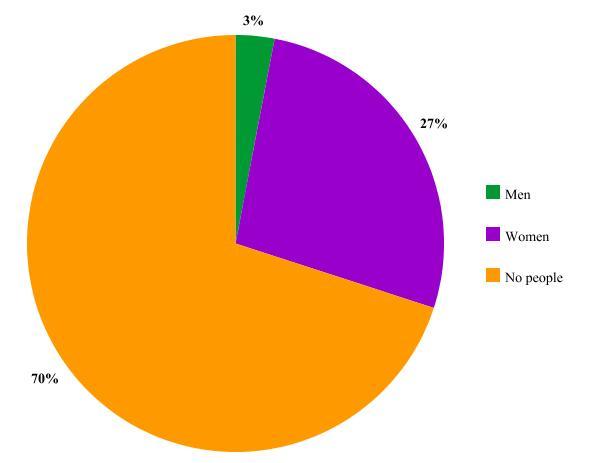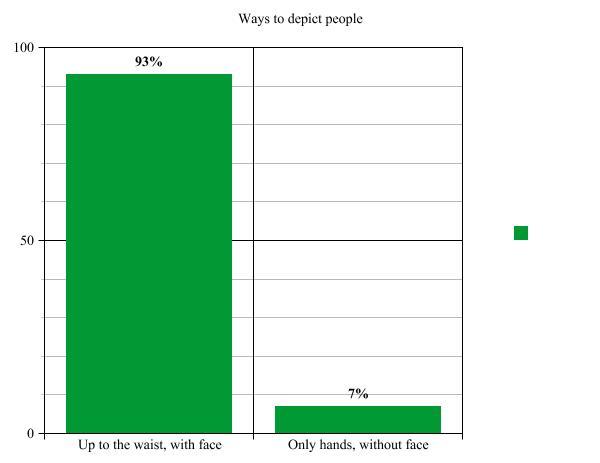Introduction
Nowadays, it is impossible to imagine a human society without the means of mass media. With the help of modern means of communication and new technologies that are still developing it becomes possible to store and transmit the information that possesses certain significance for humanity. Speaking about the functions that modern media are supposed to fulfill, it is necessary to pay special attention to their ability to produce certain images that often stick in the minds of different people. Among other things, media may create stereotypes or show the things connected to our society in a way that encourages many people to accept wrong ideas.
In this connection, it may be very interesting to study the topic of different professions and the way that they are represented in media. In the given paper, I review the results of content analysis that has been conducted to study the way of how the pharmacists are portrayed in the media. Among other things, it was important to define the messages conveyed with the help of analyzed images. The images were chosen with the help of the Google search engine. During the work, I was analyzing these materials to single out the most important tendencies connected to the representation of pharmacists in media. The factors that were considered during the work included both characteristics of the people or objects that were depicted and the messages related to the profession.
Content analysis results and interpretation
To collect the material for further analysis, I was using the Google search engine. The images that were used included 30 photos that were found by the engine using the help of the following web search query: “pharmacy”. After that, I analyzed these images using a few factors allowing me to extend the knowledge on the ways of representing pharmacists in media. First, it was extremely important to consider demographic data connected to the images. In the beginning, it is necessary to say that not all the materials contained the images of people. Only 30% of the images were depicting people. The other 70% of the images were depicting other things related to the sphere (such as shelves, medical drugs, pills, and receipts). Thus, it is possible to conclude that the attention of the society is not focused on people and their influence when it comes to the discussed sphere. Only a few pictures were representing people, their emotions, and their willingness to help their clients. What is more, it is possible to conclude that the common perception of pharmacists and their work is not connected to emotions or communication. The results are shown in the chart below.

Instead, the pharmacists are regarded as the people who usually remain unnoticed. Another reason for this situation may be connected to the particular circumstances related to visiting pharmacists. Their clients usually have certain problems that make their lives more difficult. Due to that, they tend to think only about their concerns and pay no attention to other people.
What is more, the images showing people could be divided into two separate groups according to the way that these people were depicted? It has to be mentioned that almost all these images were showing the faces of pharmacists and their clients. At the same time, there were a few pictures (almost 7 %) that were showing only the hands of the depicted people. The results are illustrated below.

As for the situation with the genders of the people, almost all of the pictures were depicting women. Overall, women could be seen six times as often as men in these pictures. Considering this very fact, we may state that women are believed to be more likely to work as pharmacists. At the same time, I believe that this information can be connected with different perceptions of men and women and their roles in society. Thus, women are usually believed to be more sympathetic, delicate, and thoughtful than men but researchers are proving that it is a stereotype. Therefore, people are more likely to imagine a woman when they are supposed to think about professional working in healthcare.
The next detail that was analyzed within the frame of this project was the ethnicity and age of the depicted people. Taking into consideration the small number of pictures that are showing people, it is necessary to say that the information concerning race and age cannot be called comprehensive enough. Nevertheless, it is necessary to report these results as they can demonstrate the stereotypes that still exist in the discussed sphere. Thus, 100% of the people depicted were white. Moreover, all of them seemed to be young (approximately 25-35 years old). In this connection, it is also extremely important to mention the roles and occupations of the people depicted in the photos. Thus, almost all of them were pharmacists wearing the uniform and performing their everyday duties. Nevertheless, there was one person depicted as the customer, and it was a man.
Furthermore, analyzing the materials, it is very important to consider one more factor that may help to better understand the results of the project. Thus, there is a group of factors allowing to make important conclusions about the way of representing pharmacists in media. These factors are related to the means of nonverbal communication. The important point of analysis was connected to the facial expressions of the depicted people. Only 14% of the people were shown doing important tasks ( the person was not smiling and looking at the viewer). People depicted on other photos (86%) were smiling; what is more, they were looking either at each other or the viewer.
Speaking about the messages that can be retrieved from the discussed materials, it is necessary to evaluate their accuracy and compare them to the real situation connected to the discussed profession. As for the share of men and women who work as pharmacists, many sources are claiming that people of both sexes represent approximately a half of pharmacists in the United States. Therefore, we may state that this profession belongs to a few ones that cannot be called more appropriate only for men or women. Another thing that is important for the present report is the fact that the wrong ideas or the lack of ideas about pharmacists is typical not only for those people who are connected to other spheres. Instead, even those students who are going to work in this field in the future tend to have a poor understanding of the importance, the role, and the impact of the people working as pharmacists.
Conclusion
In the end, as it follows from the results of this analysis, media are likely to depict pharmacists as white young women. Furthermore, the analysis indicates that pharmacists are usually shown smiling, arranging medical drugs, or consulting their clients. At the same time, the situation with the share of men and women in the profession is very different from the real one. Therefore, it may be concluded that people have a lot of stereotypes concerning pharmacists. In the picture below, you can see the most common image of a pharmacist used in media.

References
Wang, Y, Hunt, K, Nazareth, I, and Petersen, I. Do men consult less than women? An analysis of routinely collected UK general practice data. BMJ Open, 2013, 3(8): 332.
Kurtz, A. Pharmacist: Most equal job for men and women.; 2013. Web.
Guérin, A, Tisseyre, M, Bussières, J. OHP-027 literature about the role and the impact of pharmacists: Perceptions of pharmacy students. European Journal of Hospital Pharmacy, 2015, 22(1): 197-199.